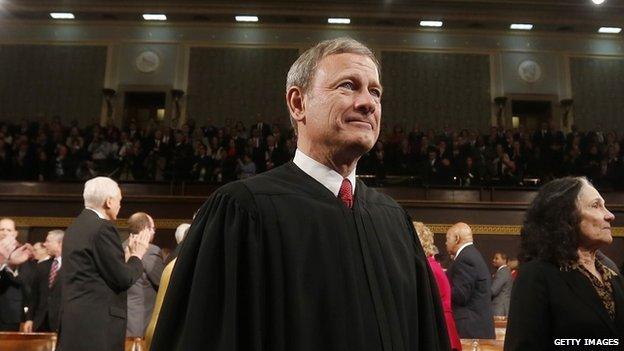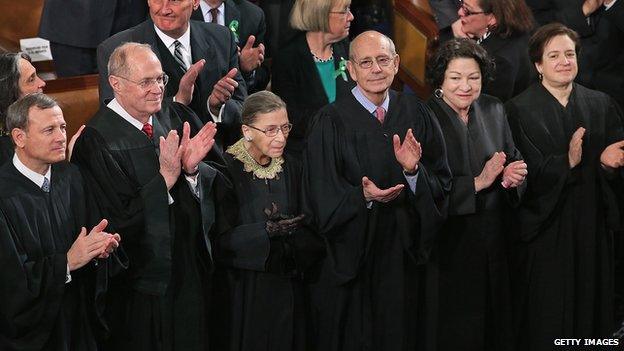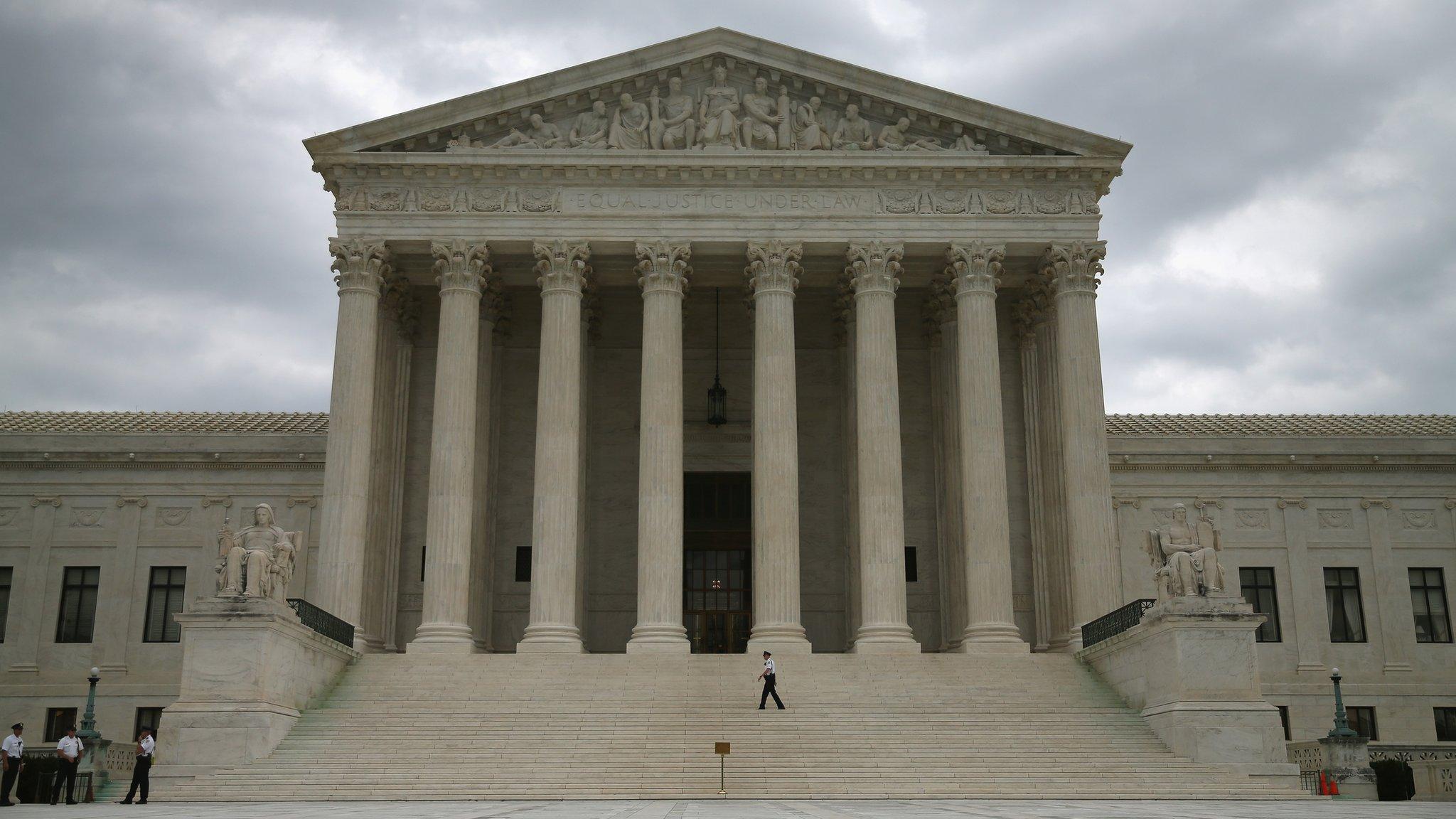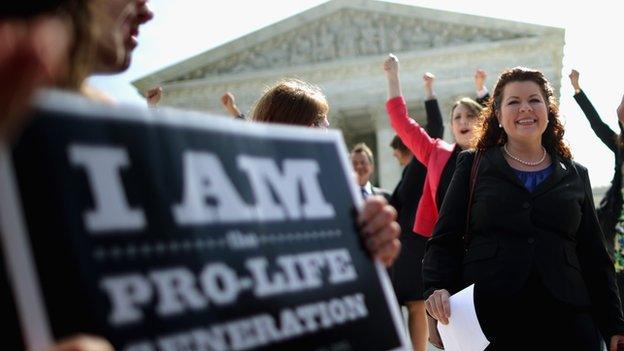Could the Supreme Court finally kill Obamacare?
- Published
- comments

Supreme Court Chief Justice John Roberts could decide the future of Obamacare
The US Supreme Court has twice considered the challenges to President Barack Obama's signature healthcare reform and dealt it glancing blows. Will the third time be the charm for the law's opponents?
In 2012 the court upheld the requirement that most Americans must purchase health insurance or pay a tax. It struck down the requirement that states expand Medicaid healthcare coverage for the poor or face the loss of federal monies, however.
The court ruled in 2014 that the law cannot force "closely held" businesses - family owned, for instance - to provide insurance that covers contraceptive services that violate an owner's fundamental religious beliefs.
Now the court has again stepped in to pass judgement on the healthcare law. This time, according to some commentators, may be different.
At the heart of this most recent case, King v Burwell, are the subsidies the federal government offers less affluent individuals who purchase health insurance on the federally operated healthcare exchange. Although the subsidies - in the form of tax credits - were included in the reform law, the exchanges were originally envisioned as state-operated entities.
Only 14 states decided to set up their own exchanges, however. The law stipulated that the federal government could step in for the others and operate a national exchange, but the legislative language is unclear about whether the insurance subsidies could be offered by the federal government or if they're only for participating states.
Supporters of the law say it was the clear intent of the legislators to provide subsidies no matter who runs the exchanges. Without them, health insurance would be much costlier for individuals who don't get their coverage through their employer's benefit package.
Also supporting their argument is Supreme Court precedent, which holds that the executive branch has wide latitude in interpreting how laws are implemented when legislative language is vague or contradictory.

At least four Supreme Court justices voted to hear the latest healthcare reform challenge
The counter-argument is fairly straightforward. In the text of the law it says that subsidies are for individuals who obtain coverage "through an Exchange established by the State" - and the letter of the law should not be open to interpretation from government agencies.
The courts announcement came as a shock to many liberals, external, who didn't think the justices would be so quick to jump into the healthcare debate yet again.
So far two appellate courts have considered challenges to the subsidies, but one upheld the administration's interpretation and the other is still in the process of rehearing a decision to strike it down. Given that the court tends to wait until there's a conflict between lower courts or a novel constitutional issue, the quick action has some predicting doom.
"If the challenge succeeds, the consequences for Obamacare would be dramatic: Costs would skyrocket for millions of consumers, likely causing many of them to drop their coverage," writes National Journal's Sam Baker. "The law's central goal - expanding health insurance to low-income Americans - would be severely set back, and at least some of the law's new insurance markets could become unsustainable."
The Washington Post's Dana Milbank observes, external that just by agreeing to hear the case, the court has undermined the law.
"The trouble is the doubt among potential enrollees the Supreme Court has created by raising the possibility that the law will be eliminated - just like the doubt created when HealthCare.gov flopped a year ago, and the doubt Republicans have tried to create with incessant talk of repealing the law," he writes.
In the National Review, John Yoo says, external that despite liberal claims that the case is frivolous, the court will likely strike down the federal subsidies.
"The plain text of the statute denies subsidies to people who live in states without an exchange," he writes. "This reading is not absurd, because it creates a powerful incentive for states to create an exchange in the first place."
Of course Congress could easily rectify the situation by clarifying whether the tax subsidies were intended for all consumers. But with the legislative branch in the hands of Republicans who would greatly prefer to see the law collapse, such an outcome seems unlikely.
And if the court does strike down the subsidies, states could step in and establish their own exchanges, but expecting Republican-dominated governments to do that seems unlikely, as well.
It takes at least four justices to agree to hear a case. Give that there were four justices ready to strike down the insurance mandate, which was equally integral to the law, in 2012, the decision to hear the case shouldn't come as a complete surprise.
What it seems to indicate, however, is that there are four members of the court who are going to try, time and again, to convince at least one more justices that the law, at its heart, is unconstitutional, illegal or otherwise invalid.
And like an attack with a poison-tipped sword, one successful strike is all that it takes.
- Published7 November 2014

- Published30 June 2014
